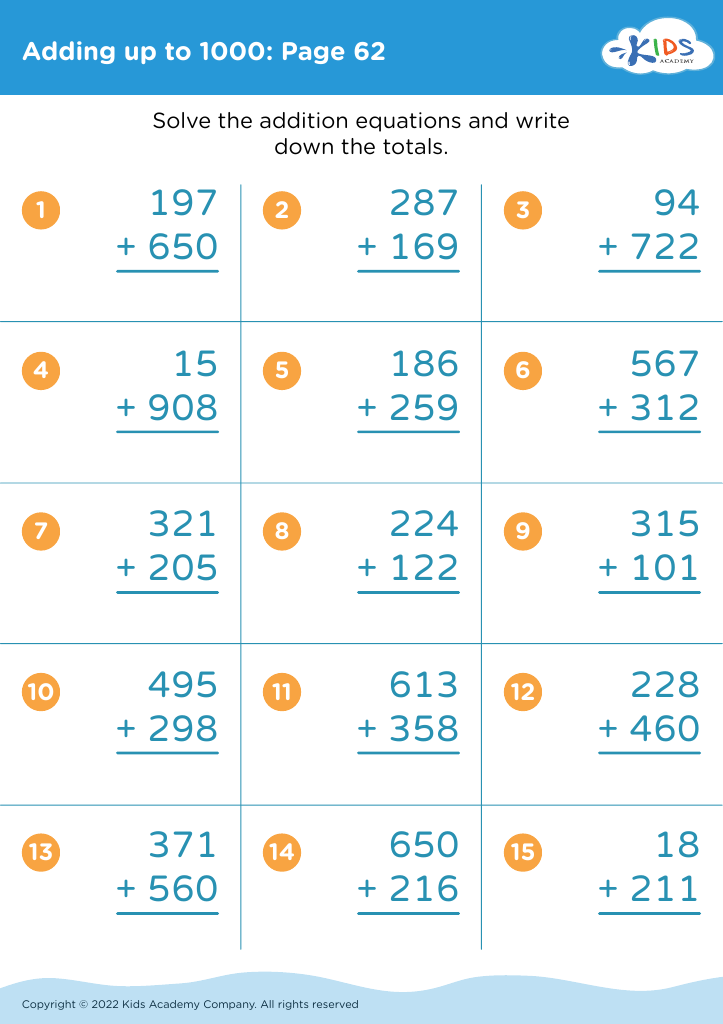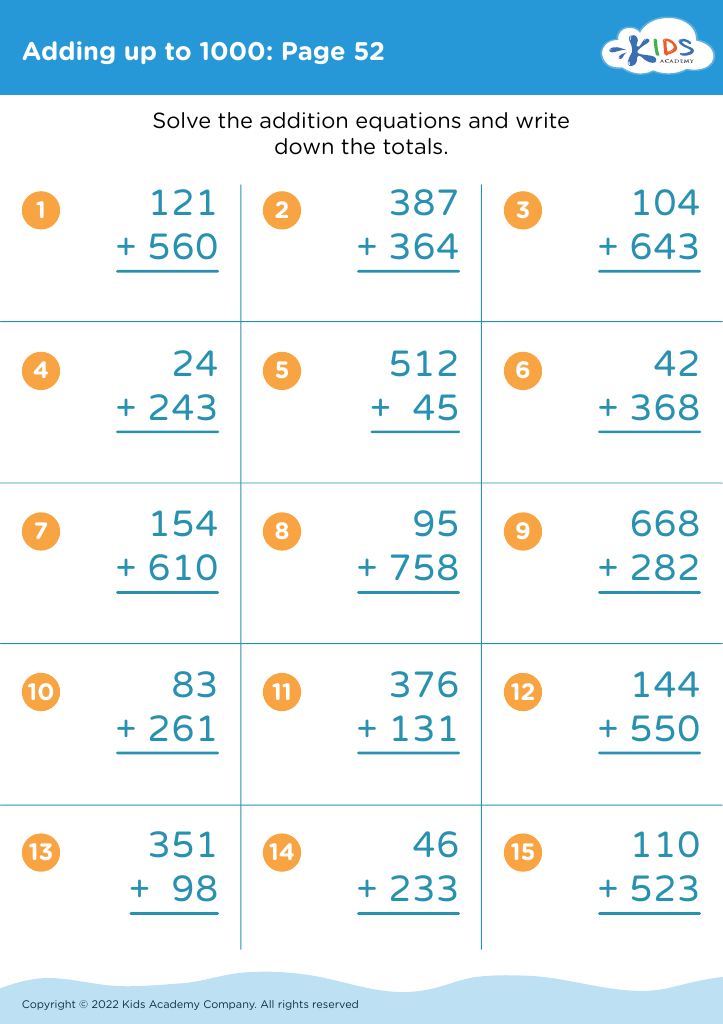Understand fractions Adding up to 1000 Misc Worksheets for Ages 8-9
3 filtered results
-
From - To
Boost your child's confidence in math with our "Understand Fractions Adding up to 1000 Misc Worksheets" tailored for ages 8-9. These engaging worksheets offer comprehensive practice in adding fractions, understanding numerical relationships, and working with larger sums. Each activity is designed to reinforce key concepts and skills, ensuring a solid foundation in math. Perfect as a classroom supplement or home practice, our worksheets make learning fun and effective. Download now to help your child master fractions and addition up to 1000, setting the stage for more advanced math success.
Understanding fractions is crucial for children ages 8-9 because it lays the groundwork for more advanced mathematical concepts they'll encounter in later grades. At this age, children are beginning to move beyond basic arithmetic, and fractions help enhance their number sense, boosting their confidence in math.
Firstly, grasping fractions helps improve problem-solving skills. When children understand fractions, they begin to see relationships between numbers, developing the ability to compare, combine, and deconstruct them in meaningful ways. This foundational knowledge is critical for tackling higher-level math problems in the future.
Secondly, real-life connections become more apparent. Fractions are everywhere, from cooking recipes that require precise measurements to dividing a pizza among friends. Understanding these concepts encourages children to see the relevance of math in daily activities, fostering a practical appreciation for the subject.
Lastly, adding fractions that sum up to 1000 and misc calculations further challenge their cognitive abilities, such as memory, estimation, and logical reasoning. It introduces them to the importance of accuracy and attention to detail, skills that are not only vital in math but also in other subjects and everyday tasks.
In sum, a solid understanding of fractions at ages 8-9 is instrumental in shaping a child's overall academic and practical abilities, setting them on a path to success both in school and in life.














